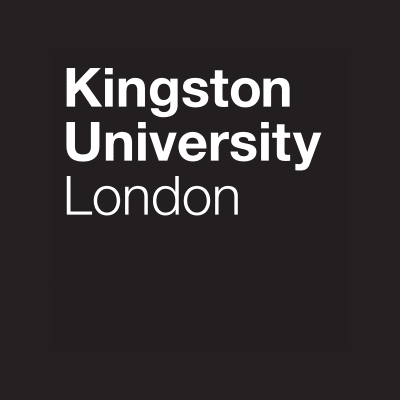
MA in Animation
Kingston University

Key Information
Campus location
Kingston upon Thames, United Kingdom
Languages
English
Study format
On-Campus
Duration
1 - 2 year
Pace
Full time, Part time
Tuition fees
GBP 10,900 / per year **
Application deadline
Request info *
Earliest start date
Request info
* there is no application deadline for postgraduate courses
** home full-time: £10,900 | international full-time: £18,700
Introduction
Why choose this course?
The MA Animation programme at Kingston School of Art takes a creative and director-led approach to interdisciplinary moving image production. This course will give you the skills and attributes to thrive in a professional environment shaped by rapid cultural and technological change. It will introduce you to a wide range of interlinked and adaptable technologies and methods including 2D and 3D animation, virtual reality and augmented reality. You will use animation methods to interpret knowledge, stories, ideas and data into visual or experiential outputs that communicate complexity with empathy.
MA Animation supports the development of an individual practice informed by a culture that values research and collaboration. Research is seen as integral to the act of critical making through experimentation with physical, digital and virtual tools and technologies embracing a diverse range of multidisciplinary approaches.
Through tutorials, lectures, seminars, workshops and research projects, you will gain the critical tools, knowledge and confidence needed to contribute to the development of the subject and its practice. Every student will have the opportunity to complete an extended research project, typically a film.
Reasons to choose Kingston
- You will be given creative agency to develop an individual and critical approach to advanced animation practice.
- An interdisciplinary approach is valued and promoted through shared modules and collaborative projects that ask you to look beyond disciplinary limits.
- The curriculum is designed to support you gain 'Future Skills' and attributes such as creative problem-solving, reasoning, and emotional intelligence.
The Art School Experience
As part of Kingston School of Art, students on this course benefit from joining a creative community where collaborative working and critical practice are encouraged.
Our workshops and studios are open to all disciplines, enabling students and staff to work together, share ideas and explore multi-disciplinary making.
Gallery
Admissions
Curriculum
What you will study
Through tutorials, field trips, lectures, seminars, workshops and research projects, you will gain the technical skills, critical tools, knowledge and confidence needed to contribute to the development of the subject and its practice. You will be asked to examine your own practice and identify existing practice-based research methods, which will then be developed by introducing discipline-specific notions of rigour, originality, ethics, positioning and inclusivity. Modules have been designed and aligned to ensure that students are able to make intellectual links between practice, critical theory and real-world scenarios. In doing so, this programme prioritises the development of individual practitioner and their creative work.
There is an emphasis on independent and self-directed learning where students are given autonomy to develop a practice that supports their aspirations and ambitions. Skills in critical reflection and analysis provide you with the tools necessary to make decisions about your practice and learning trajectory. Students are provided with the opportunity to initiate, propose, and realise an Extended Research Project (Capstone Project), typically a film, that is ambitious in scale and scope. Studio modules include the development of animation skills, concepts and practice through project work and utilise the studio as a site for making. Reading modules focus on critical and contextual theory or issues and positioning practice critically. Presentation modules orientate students within a professional landscape and include preparation for employment through the development of future skills and career planning. The three Studio modules are specific to MA Animation and the Reading and Presenting modules are shared with MA Illustration and MA Graphic Design programmes.
Please note that this is an indicative list of modules and is not intended as a definitive list. Those listed here may also be a mixture of core and optional modules.
Year 1
Core modules
- Studio: Critical Making for Animation
- Reading: Critical Positions
- Studio: Situating Practice for Animation
- Presentation: Future Directions
- Studio: Extended Research Project for Animation
Optional placement year
Many postgraduate courses at Kingston University allow students to do a 12-month work placement as part of their course. The responsibility for finding the work placement is with the student; we cannot guarantee the work placement, just the opportunity to undertake it. As the work placement is an assessed part of the course, it is covered by a student's Student Route visa.
- Professional Placement
Please note
Optional modules only run if there is enough demand. If we have an insufficient number of students interested in an optional module, that module will not be offered for this course.
Program Tuition Fee
Career Opportunities
After you graduate
Graduates from the Illustration Animation Department permeate the animation industry all over the world.
- They direct animation, motion graphics, adverts, pop promos and instructional educational films that engage hugely diverse audiences.
- They are directors and showrunners on animated series for Netflix and Cartoon Network, Aardman, Nexus, and Buck in New York and LA.
- They start their own animation studios, such as Moth and Blink/BlinkInk, Catfish Collective or Arc. They also work together as small collectives often, in turn, employing our graduates.
- They can be found in visual effects houses like Framestore and Moving Picture Company. By using interrelated skills they work not only as animators but also as art directors/designers/storyboard artists for the live-action film industry.
- They also teach and lead higher education initiatives, in the UK and internationally, that develop the potential of how visually moving images can contribute to global culture and societies.